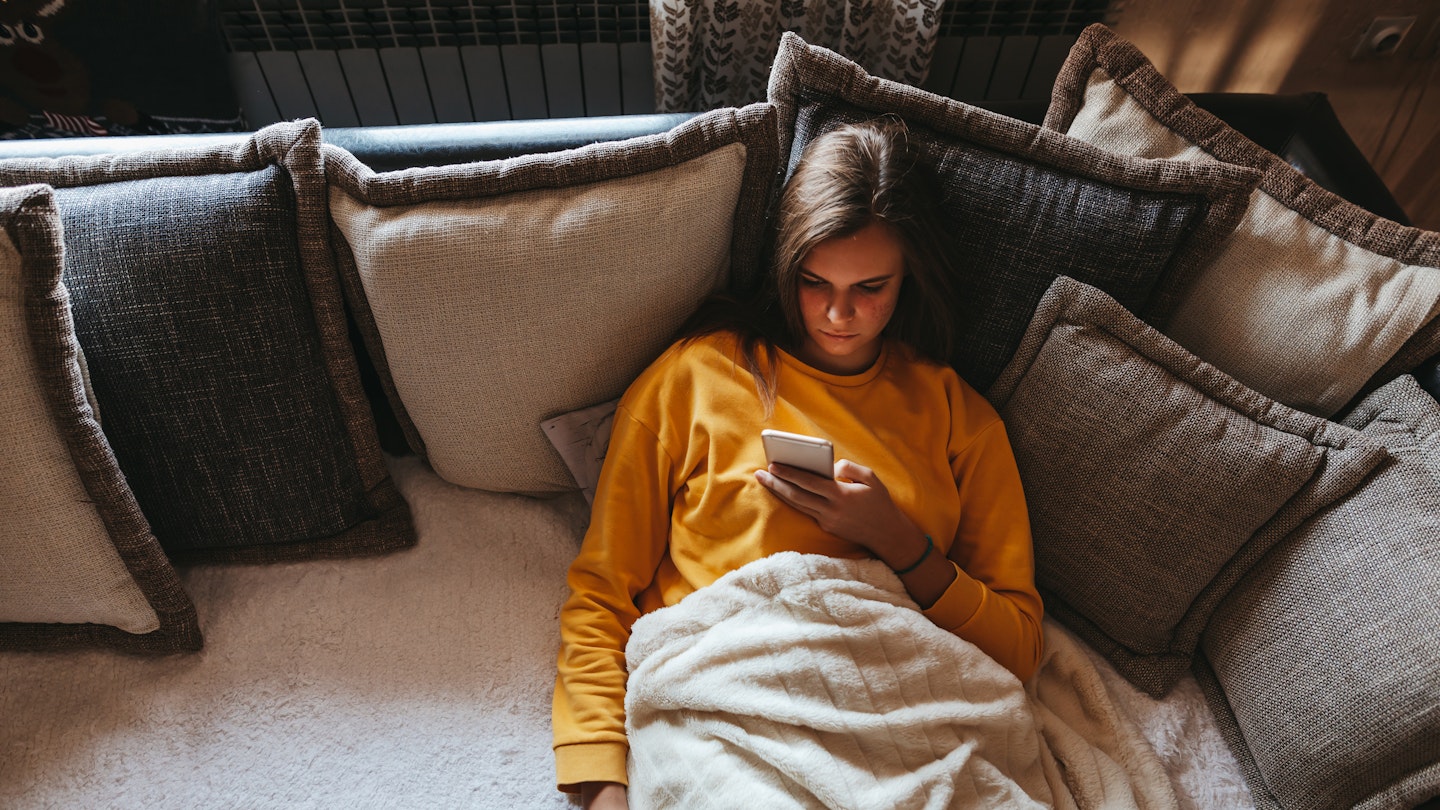An estimated 1.25million people in the UK are suffering from an eating disorder, according to the charity Beat{
Dr Luke has presented the Digitally Altered Body Image Bill in Parliament and, if successful, the regulation would extend to companies that are advertising products or services, broadcasters and publishers.
The former GP told Grazia: ‘I saw first-hand how unrealistic adverts can have a real, tangible and dangerous impact on eating disorders and body confidence issues. In instances where an image has been edited for commercial purposes, or where somebody has edited an image they are being paid to post, it is absolutely right that the image should carry a disclaimer. These edited images do not represent reality.
‘My hope is that we, as consumers and social media users, never actually see this disclaimer, as advertisers, broadcasters and publishers no longer feel the need to fundamentally alter proportions or body shapes… This bill helps to increase honesty and transparency and foster healthier and more realistic representations of the way we look.’
Teenagers who spend more time on social media are potentially more likely to develop eating disorders, according to research in the International Journal Of Eating Disorders{
Being exposed to unrealistic body shapes and sizes online can serve as 'inspiration' to engage in eating disorder behaviours
The bill already has support from eating disorder charities. Beat’s Director Of External Affairs Tom Quinn told Grazia: ‘Whilst social media would not be the sole cause of an eating disorder developing, from the people we support we know that pressures to look a certain way can lower self-esteem and confidence. Being exposed to unrealistic body shapes and sizes online can also serve as 'inspiration' to engage in eating disorder behaviours and become more unwell.’
If the Digitally Altered Body Image Bill is passed, the Advertising Standards Authority will devise guidelines on how Dr Luke’s proposed logo would look, where on the social media upload it would be placed and what is technically deemed as ‘editing’.
Influencers have been subjected to the same things that trigger eating disorders
Body positivity TikTok creator Lucy Robb{
She told Grazia: ‘It’s part of the same side of the coin. If people are editing their bodies, then they’ve also been affected by society’s standards. They’ve been subjected to the same things that trigger eating disorders. So, it’s a really sensitive subject. If someone feels uncomfortable posting their body on social media as it is, do we have a right to tell them that they need to say?’
Acknowledging the growth of the body positivity movement on social media in recent years, Robb added: ‘People do post a lot more about real bodies and having lumps, bumps and folds. I think those people probably feel more comfortable in their skin or they’ve gone through a journey that enables them to do that.
‘It’s the big brands that have a massive responsibility. If you were a model and you saw that you’d been retouched that would be really damaging. Yes, influencers do have a responsibility. But equally, they are just people. They’re not doing it to be malicious. It is wrong but, if anything, its society’s fault.’
Echoing Dr Luke’s hopes for the future, Robb said: ‘I think it would be great if we could be in a position as a society where nobody feels that they have to edit their images. Do I think the logos would be helpful? Yes. Would it work and will it happen? I don’t know.’
You can contact Beat, the UK's eating disorder charity, for support 365 days a year on 0808 801 0677 or beateatingdisorders.org.uk
READ MORE: There’s A New Eating Disorder 'Epidemic' Among These Women
